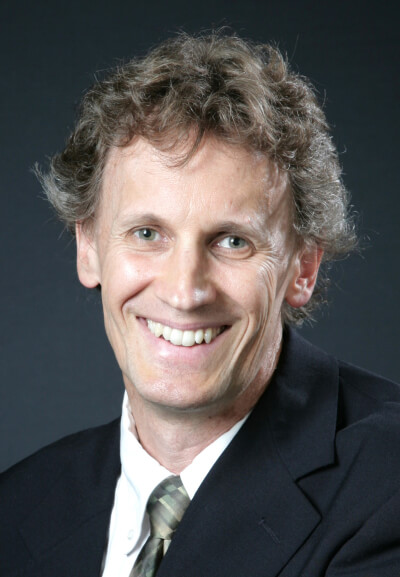Christopher Elwood
Professor of Historical Theology

Davidson College, AB; The Divinity School, Harvard University, MDiv, ThD
Christopher Elwood is a historical theologian and historian of the Christian movements, within the context of global religion and cultures.
He teaches courses in theology, religion and culture, and the global history of Christianity, with a concentration on the period from the Reformation to the present. Dr. Elwood maintains research and writing interests in the history and theology of the Reformation period; the theology of John Calvin and early Reformed traditions; theological interpretations of the body, gender and sexuality; intersections of theology and culture; and the relationship between theology and lived religious/spiritual experience.
Dr. Elwood grew up in many places, including Rio de Janeiro, Brazil, and Port of Spain, Trinidad. For two years in the early 1980s he served as the headmaster of Shiveye Secondary School in rural, western Kenya, in association with the East Africa Yearly Meeting of Friends. He was pastor of two Congregational churches in Massachusetts and is an ordained minister in the Presbyterian Church (U.S.A.). In 1996, he joined the Louisville Seminary faculty after brief periods of teaching at Harvard Divinity School and Davidson College. He worked on the committee of the Presbyterian Church (U.S.A.) charged with examining and preparing a new translation of the Heidelberg Catechism for the church’s Book of Confessions.
Dr. Elwood has written several articles and books, including The Body Broken: The Calvinist Doctrine of the Eucharist and the Symbolization of Power in Sixteenth-Century France (Oxford University Press, 1999), Calvin for Armchair Theologians (Westminster John Knox, 2002), which has been translated into Japanese, Korean, German, French, and Italian, and A Brief Introduction to John Calvin (Westminster John Knox, 2017). His current research and writing focus on two main themes: a critical re-examination of resources in Reformed piety and spirituality for compassionately engaging a suffering world, and an exploration of the theological and spiritual dimensions of grieving.
Under the multiple crises of recent years, local and global, the experience of many people, many communities is that their very lives are under siege. The world has come undone. … How do we reckon with this deep, existential sense of loss? How do we grieve? For those who are called to the holy work of theological learning and formation, what does it mean for us, in this place, to re-imagine the deeper meanings of grieving, to seek a firmer and more faithful grounding for our practices of responding to suffering and loss? … I want to suggest that centering grief, as a theological theme, and grieving, as a spiritual, moral, and theological practice, is a critically important means for deepening our witness today.
—Christopher Elwood
